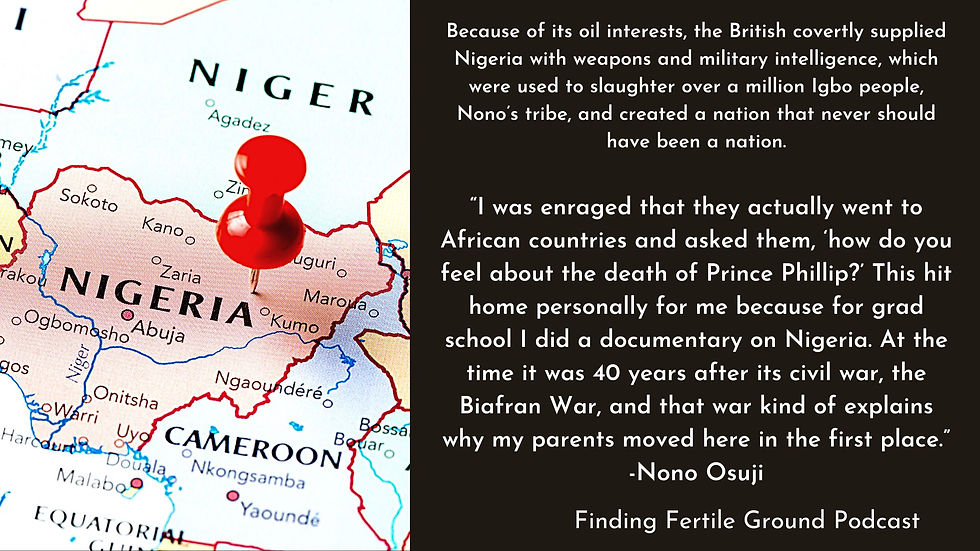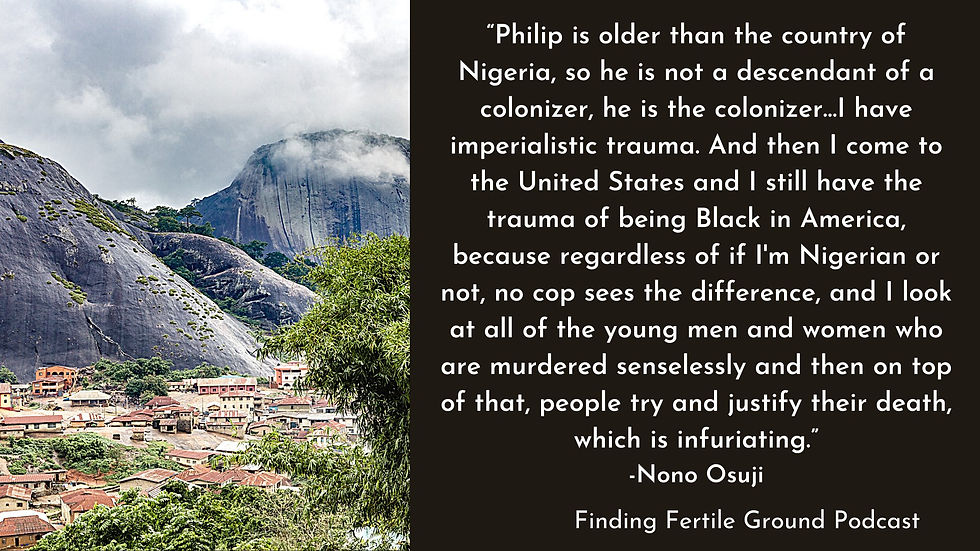The Complexity of Queen Elizabeth
- Marie G-G
- Sep 9, 2022
- 3 min read

I’m married to a Brit and have British family and friends, and many shared their sadness today over Queen Elizabeth’s passing. Her death marks the end of an era.

Hers was the longest reign of any woman leader: 70 years. And cheers to the women leaders! She was a badass, driving around in her Range Rover. As royals go, she seemed likable enough and stuck in a difficult situation, right?
But yet…if we are white people living in colonizing nations, it’s far easier to admire the Queen. We are part of the power structure, and we have benefited from her reign.
As leaders, we need to be inclusive communicators in discussing the queen’s death. We need to recognize the ways the monarchy colonized, killed, and destroyed countries and people…and the fact that people descending from colonized nations might not feel sadness about her death. (In fact, if you are only seeing grief and tributes on your social media feeds, you need to diversify your network.)
Last year I interviewed Nono Osuji on my Finding Fertile Ground podcast. Nono is a first-generation American, born to parents who had immigrated from Nigeria. Nono brought up the then-recent death of Prince Philip and how he was part of the colonization of Nigeria and other African countries.

Nono was the first person I’d talked to who had an entirely different perspective on the Royal Family, and today I can’t get her comments out of my mind.
Because of its oil interests, the British covertly supplied Nigeria with weapons and military intelligence, which were used to slaughter over a million Igbo people, Nono’s tribe, and created a nation that never should have been a nation.

My American history education was sorely lacking in learning about colonization and white supremacy. I'm grateful to Nono for opening my mind and helping me think more critically of the British monarchy.
DEI leader Xavier Ramey shared this wisdom on LinkedIn:
“The hard part of honoring the dead is that your legacy is different to different people…What is order to the spider is chaos to the fly. And my people have been the fly in the spider of colonizing nations’ web for centuries. We have not forgotten…The truth of a monarch’s legacy is found in the cries of the people no longer here, the nations built or ravaged, and the trees not yet planted…As for me, I do not proudly or humbly clap for colonizing nations (including my own) or their leaders, I do not excuse or forget the harms of those who embraced systemic injustice and White supremacy while they had breath to change, I do not patently excuse those who don’t repair and return stolen property or people, nor do I happily celebrate the death of a person—regardless of who they are…”
As leaders, we are responsible for taking care of ALL of our employees, whether they are mourning the Queen’s death or reminding us of the great damages done by colonialism and white supremacy.
It’s the leader’s duty to communicate inclusively, in a way that acknowledges both/and. We can express sympathy to the Queen’s family while also recognizing what was done in her name.
Father Nathan Monk, a former Russian Orthodox monk and social media influencer, wrote about this complexity soon after the Queen died. He was criticized for not respecting the dead. "We don't like to face it when the things we like are attached to complicated problems." He reflected on the dualism:
"Somewhere right now, a little prince is crying over the death of his grandmother. In the micro sense of humanity, I know this is true and that this matters. I feel unending compassion for human suffering. My heart does ache for that real and genuine pain. Nothing I say or do will make that better or worse. But I know that it’s real, and I don’t discredit that.
He went on,
What I also know is that somewhere many children are going to bed hungry because the possibility of generational wealth was stolen from them by imperialistic colonialism. That is also a reality. For this, my heart also aches, and much more deeply. I want you to hear their cries too. Mourn for the child who will hunger or thirst while we lay Queens in coffins worth enough that it could end their suffering."
I’ll let Xavier Ramey have the final words, again from his LinkedIn post:
“Death is not the solution to injustice, nor does it heal the wounds caused by life for those who remain in the wake of a leader who refused to stand boldly against injustice. Collective change and each person benefitting from racial and economic castes surrendering that privilege is the answer…I pray that God and loved ones comfort Britain’s past Queen’s loved ones and community. And that the UK makes amends for its current legacy which she oversaw, and the next leader who will also have the option to change courses from global militarism, White supremacy, and hypercapitalism.”


留言